|
|
|
|
Nau mai haere mai — welcome to your weekly newsletter.
If it felt slightly unreal waking up to news of a potentially effective COVID-19 vaccine, the announcement of another possible breakthrough within days was positively surreal. It seems there is cause for cautious optimism at last.
But as Barbara Allen and Michael Macaulay explain, if either (or another) option is approved and goes into production, some hard ethical and practical decisions will have to be made — not the least of which is who should get the vaccine first, when we already know the pandemic has disproportionately harmed poorer communities and countries.
Also in this edition is a fascinating analysis of the cannabis referendum result from the recent election. Jack Vowles looks at the ages of those who voted for and against legalisation and suggests that time is on the side of the reformers.
There is plenty more here and on our homepage, so happy reading and, as ever, thank you for your continued support. Until next time, ngā mihi maioha ki a koutou katoa.
|
Finlay Macdonald
New Zealand Editor: Politics, Business + Arts
|

|
|
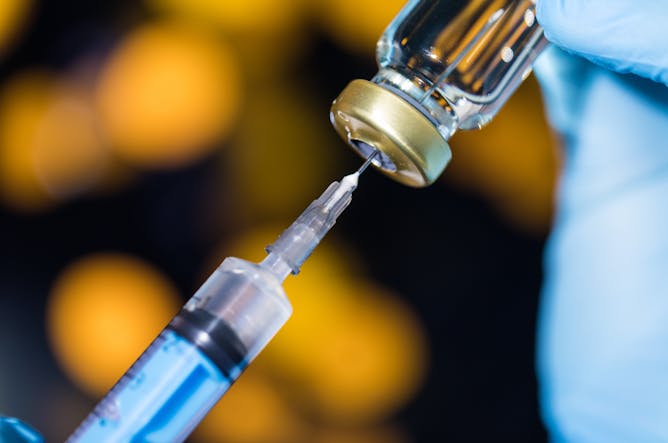
www.shutterstock.com'
Barbara Allen, Te Herenga Waka — Victoria University of Wellington; Michael Macaulay, Te Herenga Waka — Victoria University of Wellington
The funding, procurement, storage and distribution of a vaccine present huge challenges to all governments, including New Zealand's.
|
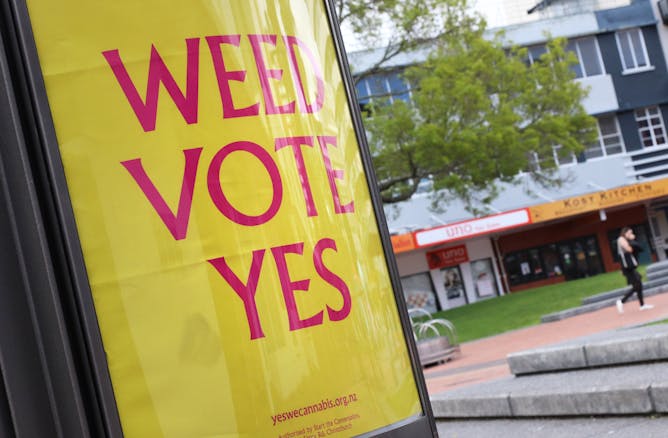
A pro-reform billboard in Hamilton leading up to the October election and referendum.
GettyImages
Jack Vowles, Te Herenga Waka — Victoria University of Wellington
Like Brexit in the UK, cannabis reform in New Zealand fell into an age gap — given time, a second referendum would probably succeed.
|

www.shutterstock.com
Anca C. Yallop, Auckland University of Technology
Many businesses struggle with data security, but the new Privacy Act means they will have to make protecting customers' personal information a priority.
|

www.shutterstock.com'
Harry Scheule, University of Technology Sydney
Yes, the bank would effectively pay you to borrow money. But negative interest rates won't please savers, nor will they meet the big challenges of economic recovery.
|
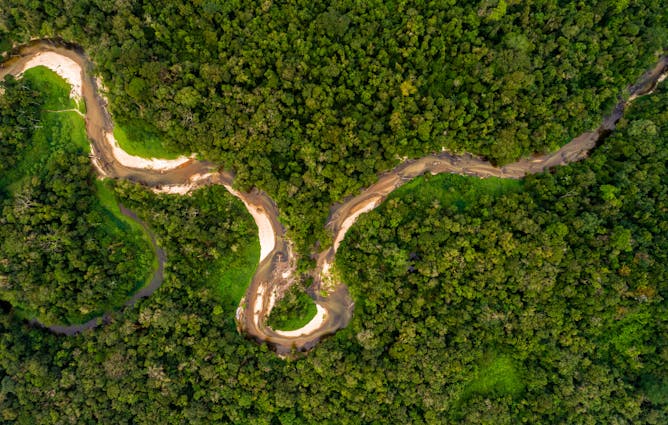
Gustavo Frazao
Sebastian Leuzinger, Auckland University of Technology
As the world's largest rainforest, the Amazon is not only an important carbon sink, but also home to thousands of species of plants and animals and a crucial part of the water cycle.
|
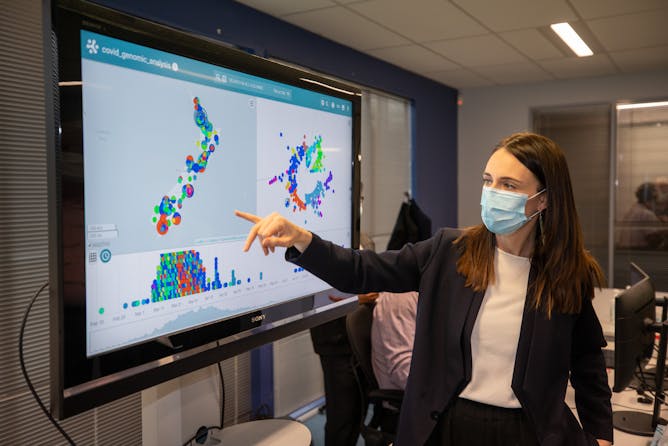
Dom Thomas/Getty Images
Liz Minchin, The Conversation; Molly Glassey, The Conversation
Watch two of Australia and New Zealand's top vaccine and virus experts answering questions about COVID-19. This was filmed at a Conversation reader event with Avid Reader bookshop.
|
From our international editions
|
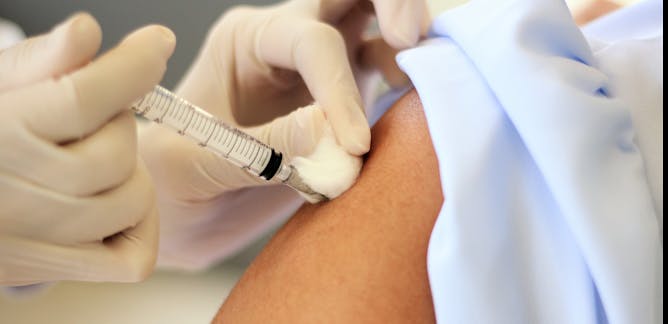
Simon Kolstoe, University of Portsmouth
The recent vaccine trial results certainly look impressive, but here's how to fully interrogate what they mean.
| |

Adrian Esterman, University of South Australia
South Australia's COVID cluster is disappointing after a long stretch of no community transmission. Now we need to act to stop it growing exponentially.
|
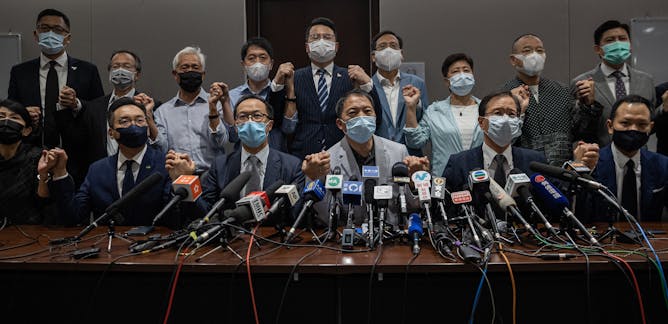
Niki JP Alsford, University of Central Lancashire
How will the incoming Biden administration deal with Beijing over its treatment of Hong Kong?
| |
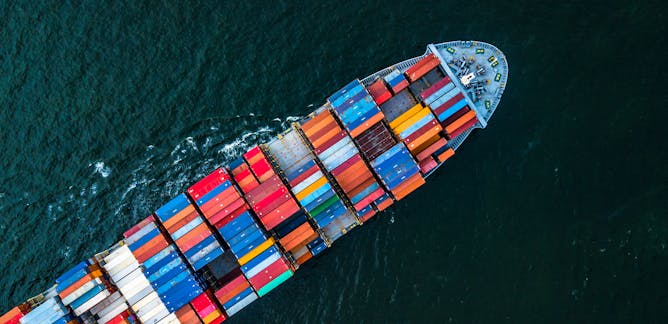
Christiaan De Beukelaer, University of Melbourne
It's high time the international shipping industry radically curbed its emissions. The industry must set a net-zero target and adopt a realistic plan to meet it.
|
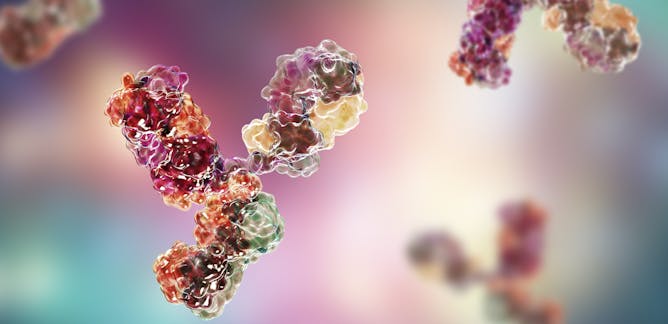
Rodney E. Rohde, Texas State University
Monoclonal antibodies are synthetic molecules manufactured in the lab. But do we need them if a vaccine is on its way?
| |

Sharon Austin, University of Florida
Women made gains in Congress this election cycle, but they are still underrepresented compared to their share of the population.
|
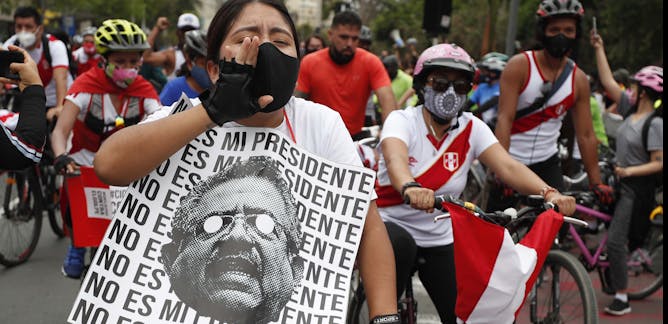
Alonso Gurmendi Dunkelberg, UCL
Peru is the latest in a chain of Latin American countries where a leader has been removed via a 'parliamentary coup'.
| |

Laurence Roope, University of Oxford; Philip Clarke, University of Oxford; Raymond Duch, University of Oxford
Whatever approach is taken, the vaccine roll-out has to be fair and efficient.
|
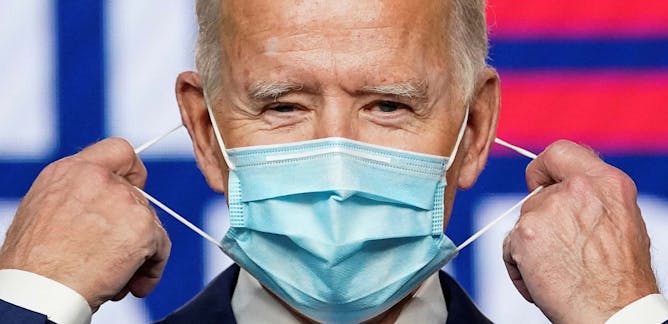
Muhammad Zulfikar Rakhmat, Universitas Islam Indonesia (UII)
Biden's soft approach to China is expected to accommodate Southeast Asia countries to make both US and China as allies.
| |

Lukoye Atwoli, Aga Khan University Graduate School of Media and Communications (GSMC); Anne Stevenson, Harvard T.H. Chan School of Public Health
Research on the genetic basis of mental illness has so far largely excluded anyone who is not of European heritage.
|
|
|
| |
| |
| |
| |
| |
| |
|
|
|
|
|
|
|